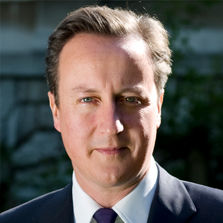
Gove, Johnson, Farage, Corbyn. Were it not for the action of
any one of a motley array of British politicians, Brexit probably never would
have happened. But the person most directly responsible for the U.K. electorate's
shock vote on June 23 to leave the European Union must be the man who called
that vote in the first place: David Cameron. Himself a Bremainer—the opposite
of a Brexiter—Cameron caved to pressure from the U.K. Independence Party and
the right wing of his own party to promise a referendum on the U.K.'s
membership in the European Union. Cameron previously had proved a consistently
sure-footed political operator; on this occasion he miscalculated
catastrophically.
For Cameron, the Brexit vote abruptly ended a glittering
career. Within a month, he resigned as prime minister. Within three, he had
quit the House of Commons completely. The populism of Brexit also heralded the
seismic election of Donald Trump as the 45th president of the United States.
Trump himself called his own win "Brexit plus-plus-plus."
For business travel, the immediate influence was an
overnight collapse in the value of sterling, making the U.K. 20 percent cheaper
for inbound visitors but conversely making accommodation and other on-trip
expenses 20 percent pricier for Brits heading abroad. No one knows the
longer-term consequences. Cameron's administration prepared no plans for what
departure would look like. Most crucially, there was no determination of the
extent to which the United Kingdom will abandon the EU's four freedoms of a
single market: capital, goods, service provision and—one that's key for
travel—movement.
Brexit could hit border controls, value-added tax recovery,
airline deregulation, Open Skies, air passenger compensation, mobile roaming
charges and data protection. Most important, Brexit will stunt growth—by 2.4
percent over the next five years, according to Chancellor of the Exchequer
Philip Hammond. And a weaker economy means less business travel.